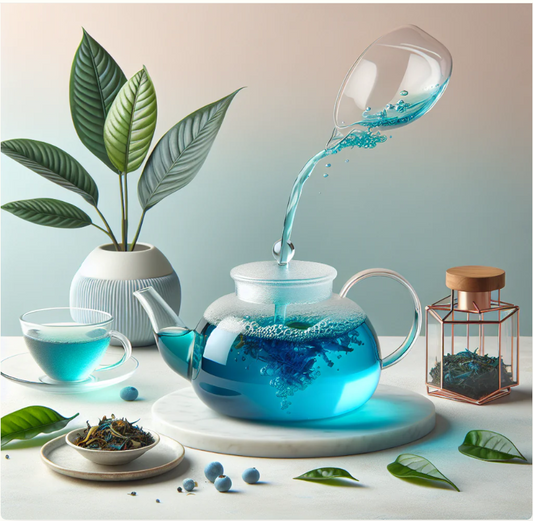
Share
Why Is Tea the Most Consumed Drink? Even in 2023?
Camellia sinensis is an evergreen subtropical plant originating in Asia that is now planted all over the world. The tea plant thrives in loose and deep soil, at high altitudes, and in subtropical climes. In a nutshell, "tea" refers to any beverage made from the Camellia sinensis plant.
Anything else is referred to as herbal tea or tisane, even though it is frequently referred to as "tea." Chamomile, rooibos, and fruit teas are examples of tisanes. In a moment, we'll discover more about them.
What exactly is in tea?
The following are the three main components of brewed tea (sometimes known as "liquor"):
- Essential Oils - These are responsible for the wonderful scents and tastes of tea.
- Polyphenols - these are the components that give tea its "briskness" or astringency in the mouth, as well as the majority of its health advantages.
- Caffeine - caffeine, which may be found in coffee, chocolate, tea, and Yerba Mate, gives the tea its natural energy boost.
The highest classification of the leaves as black, green, or other will be determined by how they are treated. In the following session, we'll go through these different types of tea.
Tea is one of the most popular beverages globally, yet its culture is entirely "local."
The popularity of a Tea
People are crazy about tea. Some consider it as Afternoon tea or Hi tea. Afternoon tea refers to taking tea in the afternoon, while Hi tea means people take it in the evening.
Benefits of Tea
Tea has been consumed by people worldwide for thousands of years, and good reason. Several teas have been shown in tests to strengthen your immune system, combat inflammation, and potentially prevent cancer and heart disease.
While certain teas offer more health benefits than others, there is plenty of evidence that drinking tea daily might improve your overall health.
White Tea
According to research, it may be the most efficient tea in preventing many kinds of cancer due to its high antioxidants. White tea has a significant amount of fluoride, catechins, and tannins, which help strengthen teeth, combat plaque, and make them more resistant to acid and sugar.
This type also has the lowest caffeine content, making it a good choice for tea users who wish to avoid or restrict their caffeine intake.
Herbal Tea
Herbal tea, also known as tisanes, are similar to white teas, but instead of tea leaves, they contain a combination of herbs, spices, fruits, or other plants. Herbal teas are recognized for their soothing effects because they don't contain caffeine.
Herbal teas come in a variety of flavors, each with its own set of advantages. The following are some of the most popular herbal teas:
- Chamomile Tea - Aids reduce menstruation discomfort and muscular spasms, improves sleep and relaxation, and lowers stress levels.
- Rooibos - improves blood pressure and circulation, raises good cholesterol while decreasing bad cholesterol, maintains healthy hair and skin, and relieves allergies.
- Peppermint - Peppermint contains menthol, which can help with nausea, constipation, irritable bowel syndrome, and motion sickness. Tension headaches and migraines are also relieved by this tea type.
- Ginger - Aids in preventing morning sickness, the treatment of persistent dyspepsia, and the relief of osteoarthritis-related joint pain.
Black Tea
Because black tea contains caffeine, unlike many other types, it's vital to keep track of how much you drink. When you drink a cup of black tea, you get flavonoids, which fight inflammation and promote a healthy immune system.
However, you don't have to drink black tea to reap the benefits of its antioxidants. It can be heated, cooled, and pressed on minor wounds, scrapes, and bruises to ease pain and reduce swelling. Inflammation produced by skin rashes and diseases like poison ivy can also be relieved with a black tea bath.
Need to know more about teas and breeze? Check out some of our teas here.



